2. The Night Of
The Night Of and the Burden of Keeping it Real
The Night Of wants it to be two ways. It wants to be a riveting thriller and a grounded procedural at the same time. It looks and feels as raw as a true-crime docudrama but has plot points that belong in a John Grisham novel. It’s like if Law & Order and The Wire had a baby and raised it listening to the Serial podcast. So, as stitched-together as that sounds, sometimes the seams do start to show and a piece of it might even fall off here and there. But, I mean, the same could be said of Frankenstein’s monster and that didn’t exactly stifle the good doctor’s revelry when it came to life, shambled forward and, miraculously, carried itself out into the world. It’s alive, goddammit, and sometimes that alone should be enough to garner our attention and praise.
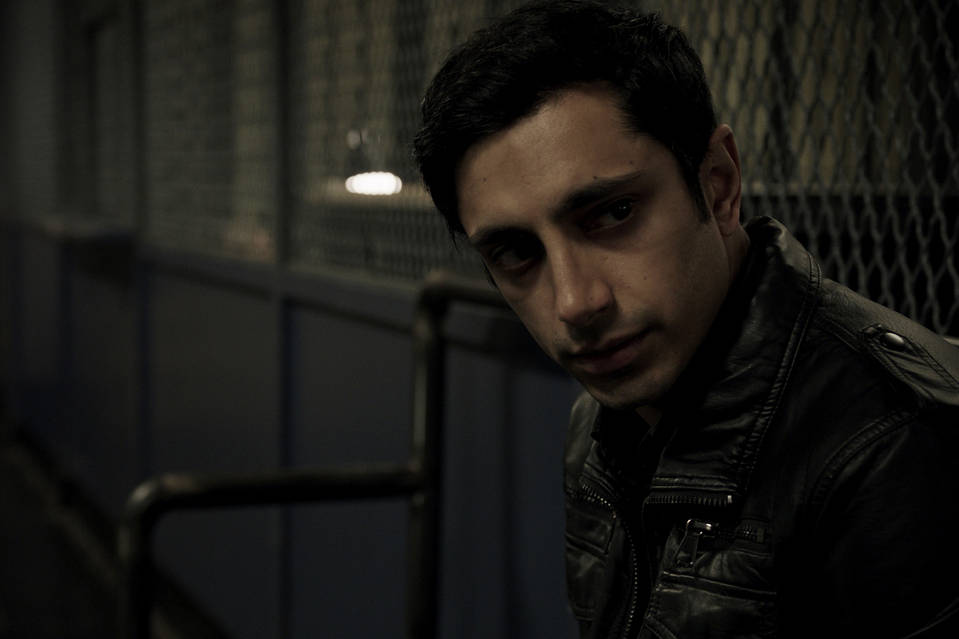
First, the basics: Nasir “Naz” Khan (Riz Ahmed, ditching his cockney patter for a spot-on American accent) is a Pakistani-American college student living with his parents in Queens, New York. One night, he “borrows” his dad’s taxi to head to a party; on the way a young woman named Andrea (Sofia Black D’Elia), mistaking him for an on-duty cab, jumps in the back and he winds up spending the evening with her. She gives him ecstasy, hard liquor and ketamine (horse tranquiliser; it’s meant to improve sex… yeah, I don’t know). They go back to her place, they fuck, he passes out and, when he awakens, he finds Andrea on her mattress, brutally stabbed to death. What would you do? Well, as if you needed a spoiler alert, he flees, is apprehended several blocks away for drunk driving and is taken to a lock-up. There, he is found to have the murder weapon in his pocket (which he grabbed as he left in a fit of panic) and the police ascertain from this that he is indeed the murderer. Case closed, right?
Yeah, not so much, but before we get any further with the story, it needs to be said that what makes The Night Of stand out, both in the early-going and for its entire run, is its considered visual style and sudden tonal shifts. The opening half of the first episode is so well put together as to be its own self-contained entity; it plays almost like a high-budget indie film, amassing the deep, ominous textures of New York and projecting them onto its characters. The eerie splash of streetlights on a yellow taxi, a red-hued lampshade casting a devilish pall over Naz and Andrea , these images speak worlds about where we are, what’s happening and what we can expect next. As if this weren’t enough, the occasional perspective shifts to security camera footage of Naz driving past a tollbooth or walking into a fuel station tell us that this all means a great deal and we should be paying attention, that everything we see is going to matter and be recalled at some future date because something is going to happen soon. It should read as over-telegraphing, but instead it’s tense as all fuck. Coupled with a practically non-existent score, the sense of unease just builds unbearably, like the slowly rising noise of a flat bass string emanating from a dark room. It’s all compelling in a way that says, “This is a story”, that draws attention to its set-up and relies on our anticipation of clean narrative pay-off to be successful.
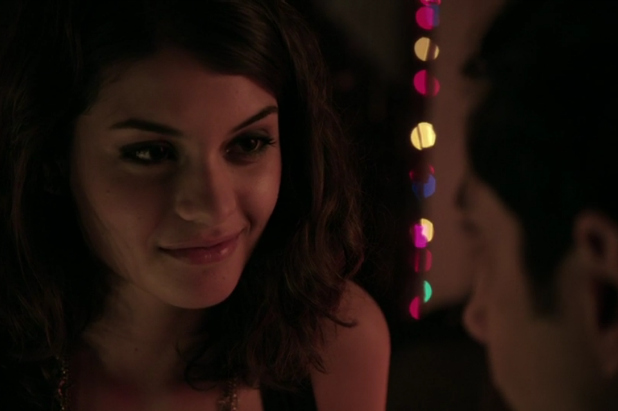
Then there’s the second half of the episode, which eschews the thrills of the previous half-hour to become an understated and entirely probable portrayal of the criminal justice system at work. The change isn’t significant enough to cause whiplash but there’s definitely a sense that, even if the same story is being told, it’s in a new, subtler language. The two police officers who intercept Naz are the first tip-off to this development: they’re exhausted but not aggressive, quick with their remarks but not especially witty and calmly authoritative, with just a hint of irritation. In other words, they’re unlike any two cops I’ve ever seen before on television. Then there’s Detective Dennis Box who, similarly, is a man very rarely seen in any creative medium. He’s a good detective, but it’s not because he’s a genius or that he cares so much, he’s just observant and knows when to let the facts speak for themselves. His jobs wearies him, but not to the extent that he’s crippled with alcoholism or haunted by The One Case He Couldn’t Solve, it’s just a pain. He loves opera and is well-read on the subject of Islam, and those two things help him with the case approximately 0% of the time; it’s just some shit we come to find out about him, is all. Box probably represents the majority of what detectives in the USA, and the world over, are actually like: smart, tired and not especially hungry for justice, just the most likely solution.
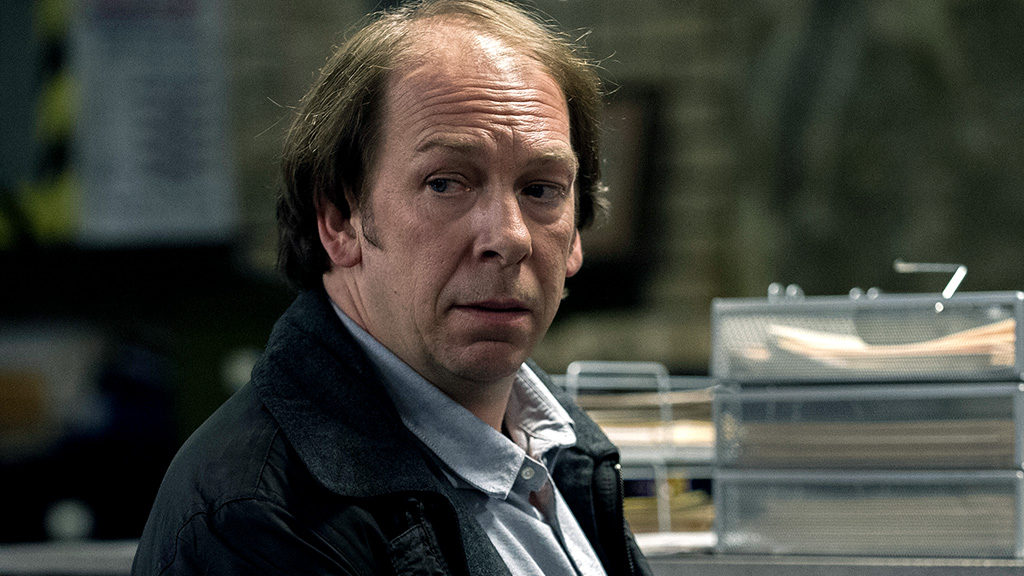
The remainder of the episode, after Box’s introduction, is dedicated to Naz’s arrest and processing at the jailhouse, which is all very formal and by-the-book. There’s an earlier moment, though, right at the point where the two halves of this episode intersect that is just about the best representation of the divergent approaches that define The Night Of. In a startling, heart-pounding setpiece, Box arrives at the precinct where Naz is being held and reads a description to a shift commander detailing the suspect they’re hunting for Andrea’s murder. Meanwhile Naz, who has only been detained for driving under the influence, is being routinely frisked by another officer not ten feet away. The camera cuts back and forth between Naz and Box and, as the officer’s hands move ever closer to the jacket pocket where Naz stashed the knife that killed Andrea, Box starts listing items they expect to find on the suspect. “What we’re looking for”, says Box, “is an approximately five-inch long, one-and-a-half inch wide, possibly serrated…”, and at that moment he turns, to see the officer who was frisking Naz pull the blade from his pocket. Box pauses and gazes in disbelief at the weapon, dangling in the air in front of him. “…Knife”, he concludes. It’s a phenomenally well-timed sequence and, what’s more, a great example of the overlap that so often occurs on The Night Of, that sweet spot where the gritty, down-to-Earth cop drama meets the seat-of -your-pants thriller that requires more than a little suspension of disbelief.
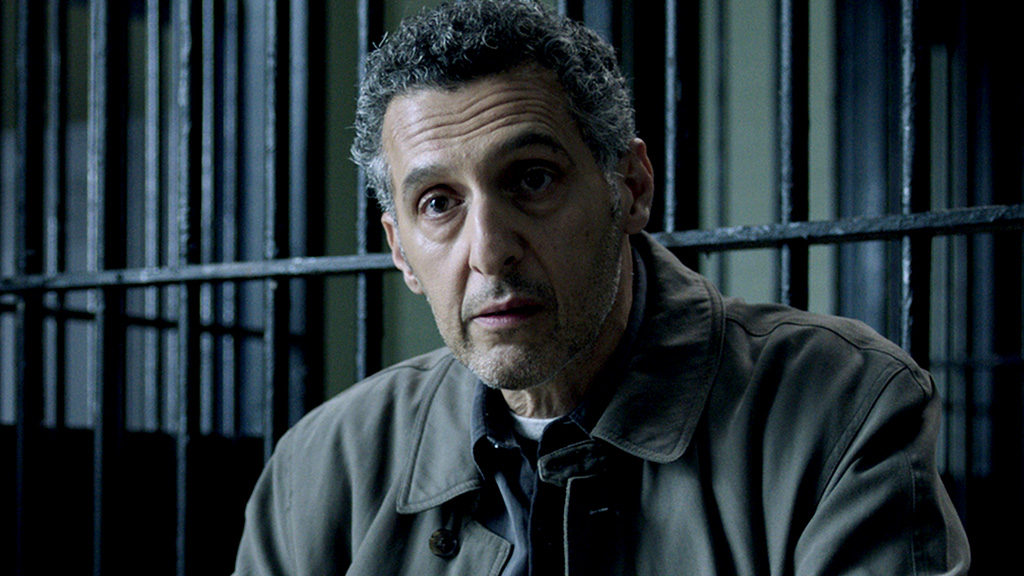
Throughout the show, this trade-off between pulp and verité only grows more pronounced. There’s John Stone, a for-hire defense attorney played with great affection and a refreshing lack of vanity by John Turturro. The true protagonist in a lot of ways, Stone takes on Naz’s case and, once it becomes apparent how high-profile a trial it will be, immediately hits Naz’s parents up for 75 grand. At another point, he practically begs Naz to take a deal that would see him imprisoned for 15 years rather than take his chances with a jury that would almost certainly convict him. So you see, he’s not your typical “anything for my client”-type lawyer from The Practice and nor is he Saul Goodman; he’s just a regular attorney, who knows what he’s talking about, expects compensation and hopes it will all work out in the end. Then again, he also has a near-debilitating bout of eczema and a saccharine subplot with a cat that, while entertaining, feels very much like a neon sign indicating that these are his character traits.
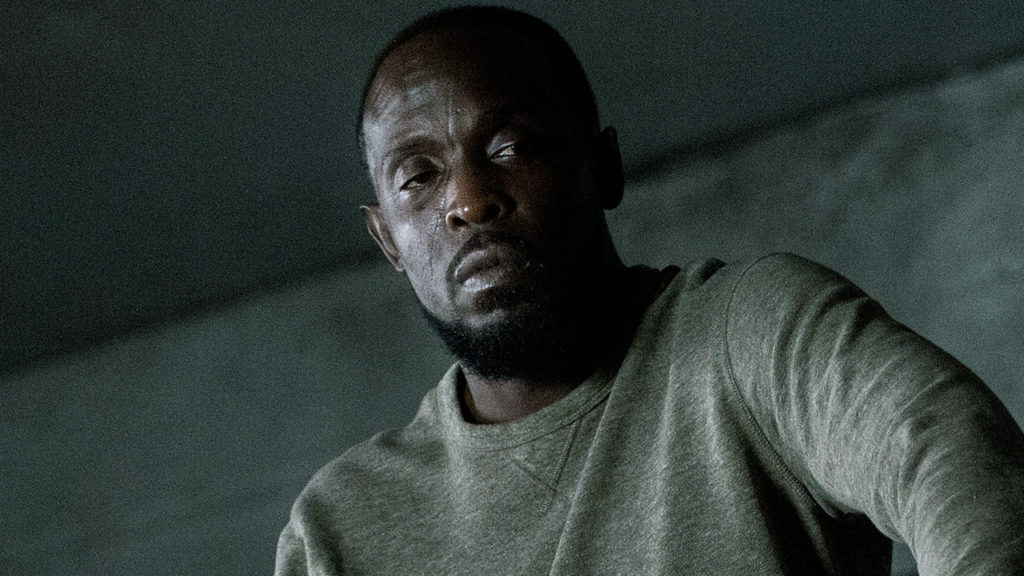
Elsewhere, Naz’s time spent at Rikers Island awaiting his trial examines the systematic fuckery that bedevils a man in confinement and the things he is forced to do to survive, like smuggle in bags of narcotics by any (like, any) means necessary. Rikers is also where we meet Freddy (a stellar Michael K. Williams) an intriguing character who, nonetheless, takes Naz under his wing and offers protection for very little reason other than the fact that he enjoys their conversations. Don’t get me wrong, the scenes at the prison are fantastic and sometimes knuckle-whiteningly fraught with tension, it’s just that the whole, “I like you because I’m an intellectual criminal” act seems mighty convenient and maybe a little too cheap a ploy for such an otherwise level-headed show.
So yeah, in the end, it turns out it is a TV show; fuck me, right? In that context, these do seem like silly gripes to have, that some of the elements are too pat or obvious. Ultimately, no matter what kind of show you’re watching, there will always be a discernible formula in place. Tropes emerge organically because stories demand that they do, but the strangeness here is in that divergence of tone between realism and formalism, the slanted friction that occurs where those two ideals meet. What’s most remarkable, however, is how often it ends up a boon to the show itself. Indeed, two separate shows maybe would’ve been more coherent, but not nearly as interesting.
One Reply to “2. The Night Of”